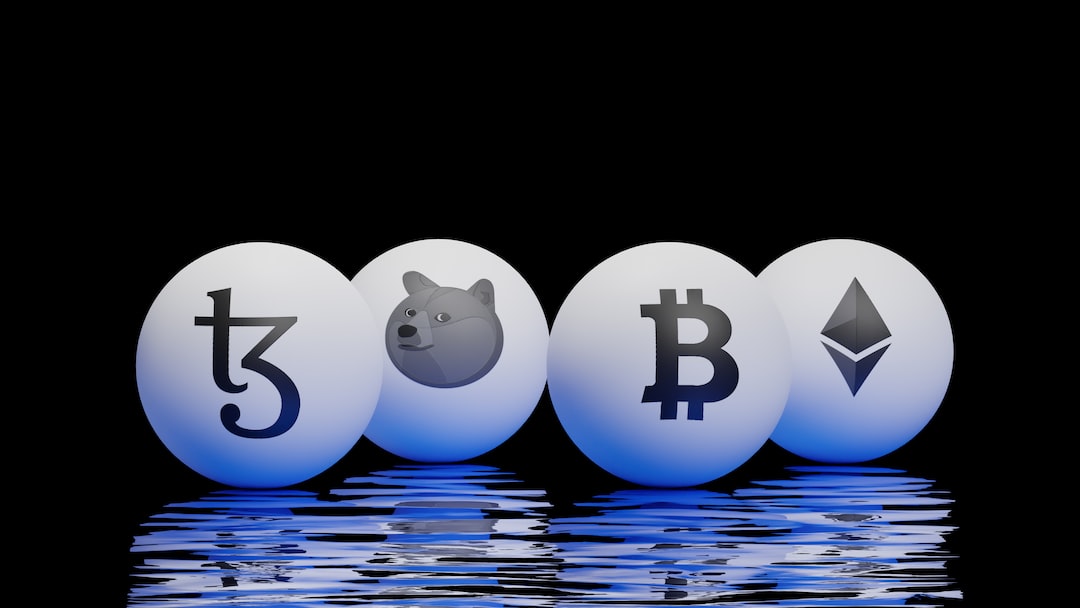TRON Coin vs. Ethereum: A Battle for Decentralized Dominance
When it comes to the world of cryptocurrencies, TRON Coin and Ethereum are two of the most prominent players in the market. Both platforms are designed to support decentralized applications (dApps) and smart contracts, but they have their own unique features and capabilities. In this article, we will explore the key differences between TRON Coin and Ethereum, and help you understand which platform may be the right choice for you.
TRON Coin: A Game-Changer in the Entertainment Industry
TRON Coin was created by Justin Sun, a young entrepreneur with a vision to revolutionize the entertainment industry. It aims to eliminate intermediaries and create a direct connection between content creators and consumers. With a focus on decentralization and peer-to-peer transactions, TRON Coin offers a platform for the seamless distribution and consumption of digital content.
TRON Coin boasts a high transaction speed, thanks to its delegated proof-of-stake (DPoS) consensus algorithm. This means that transactions on the TRON network can be completed in a matter of seconds, making it ideal for high-volume applications. Furthermore, TRON Coin allows developers to create and deploy their own dApps, providing them with a robust ecosystem to innovate and monetize their creations.
Another key feature of TRON Coin is its commitment to free content sharing. It envisions a future where content creators can receive direct payments from consumers, eliminating the need for intermediaries and reducing costs. This has the potential to disrupt traditional media industries such as music and film, where artists often struggle to receive fair compensation for their work.
Ethereum: The Pioneer of Smart Contracts
Ethereum, on the other hand, is a platform that introduced the concept of smart contracts to the world. Created by Vitalik Buterin, a well-known figure in the cryptocurrency community, Ethereum has gained widespread adoption due to its versatility and flexibility. It allows developers to build and deploy decentralized applications, enabling the creation of a wide range of innovative solutions.
One of the major advantages of Ethereum is its support for Turing-complete programming languages. This means that developers have the freedom to create complex and sophisticated smart contracts, opening up a world of possibilities. Ethereum’s native cryptocurrency, Ether, is used as fuel for the execution of smart contracts and acts as a medium of exchange within the platform.
Ethereum has also been at the forefront of the Initial Coin Offering (ICO) boom, with many projects choosing to raise funds through the Ethereum blockchain. This has contributed to its widespread adoption and has solidified its position as a key player in the cryptocurrency industry.
TRON vs. Ethereum: The Key Differences
Now that we have a basic understanding of TRON Coin and Ethereum, let’s dive into the key differences between these two platforms.
1. Scalability: TRON Coin offers higher scalability compared to Ethereum. With its DPoS consensus algorithm, TRON can handle a greater number of transactions per second, making it more suitable for high-volume applications. Ethereum, on the other hand, has been facing scalability challenges, with network congestion and high gas fees becoming common issues.
2. Programming Language: While Ethereum has the advantage of supporting Turing-complete programming languages, TRON Coin uses its own language called Solidity. While Solidity is similar to Ethereum’s Solidity, it has been optimized for greater efficiency and faster execution.
3. Community and Adoption: Ethereum has a larger and more established community compared to TRON Coin. This has resulted in a wider variety of dApps and a stronger network effect. However, TRON Coin has been rapidly gaining traction, particularly in the entertainment industry, and its innovative features have garnered the attention of content creators and users alike.
Which Platform is Right for You?
Deciding between TRON Coin and Ethereum ultimately depends on your specific needs and preferences. If you are looking for a platform that offers high scalability and fast transactions, TRON Coin may be the better choice. Its focus on the entertainment industry and commitment to free content sharing also make it an attractive option for content creators.
On the other hand, if you value a well-established ecosystem and a wider range of dApps, Ethereum may be the platform for you. Its support for Turing-complete programming languages and its pioneering role in the world of smart contracts make it a powerful tool for developers.
Before making any decisions, it is important to do your own research and carefully consider your specific use case. Cryptocurrencies and blockchain technology are constantly evolving, and it is crucial to stay informed about the latest developments and trends.
Frequently Asked Questions (FAQs)
Q: Can I use TRON Coin and Ethereum together?
A: Yes, it is possible to use TRON Coin and Ethereum together. Both platforms have their own unique features and capabilities, and they can complement each other depending on your specific requirements.
Q: Is TRON Coin a good investment?
A: As with any investment, it is important to conduct thorough research and consider your own risk tolerance. TRON Coin has shown promising growth and has gained significant adoption in the entertainment industry. However, cryptocurrency investments are subject to market fluctuations and should be approached with caution.
Q: Can I create my own dApp on TRON or Ethereum?
A: Yes, both TRON Coin and Ethereum provide developers with the tools and resources to create and deploy decentralized applications. Depending on your requirements and the specific features you need, you can choose between the two platforms.
Q: Which platform has better security?
A: Both TRON Coin and Ethereum prioritize security and have measures in place to protect user funds and data. However, Ethereum’s longer history and larger community have led to more robust security practices and auditing processes.
In conclusion, TRON Coin and Ethereum are both powerful platforms that have contributed significantly to the world of cryptocurrencies and decentralized applications. Understanding their differences and evaluating your specific needs will help you make an informed decision about which platform is right for you.





 By
By
 By
By
 By
By
 By
By

 By
By